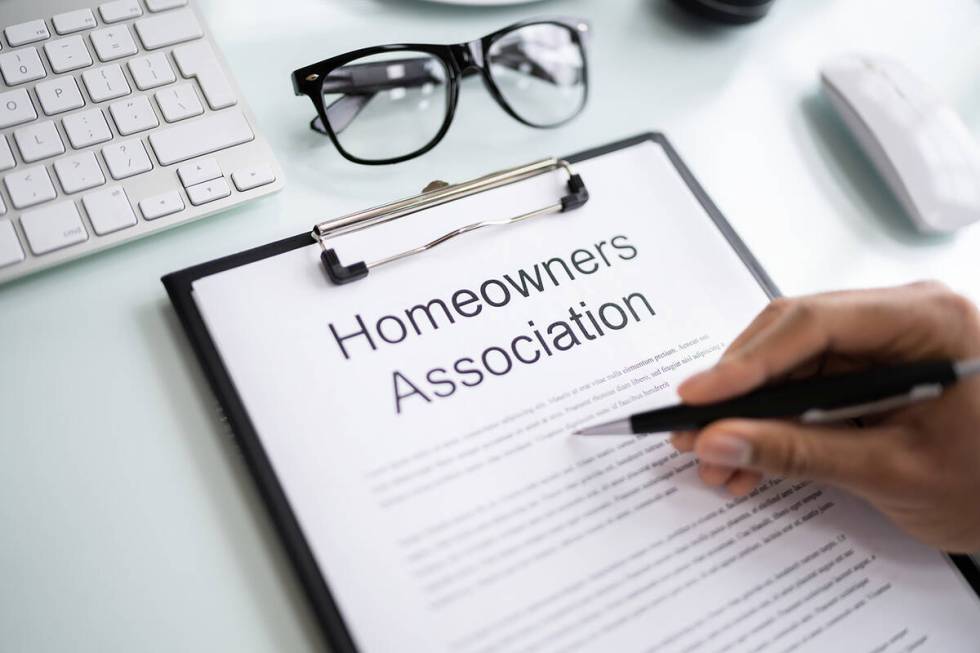Nobody wants to go to prison over an HOA election

Q: We have a homeowners association election coming up soon that is sure to be contentious. It is thought that there was tampering in a prior election (statistically far too high of a turnout — over 80 percent when the normal turnout is approximately 20 percent). A number of homeowners think that a certain member of the board was getting information in terms of which homes had not turned in ballots, and, in essence, re-creating those ballots in their favor. It would be easy to do if you have a property manager that complies with that request, and there is reason to think that this individual does. How can homeowners be assured of a fair election?
A: Anyone involved with the voting process, be it the community manager, board member or homeowner, who tampers with the ballots can be found guilty of a category D felony and can face punishment under Nevada Revised Statute 193.130.
Under NRS 116.31107, a person shall not knowingly, willfully and with the intent to fraudulently alter the true outcome of an election of a member of the board or any other vote of the units’ owners or engage in, attempt, to engage in or conspire with another person to engage in any of the following acts:
■ Changing or falsifying a voter’s ballot so that the ballot does not reflect the voter’s true ballot.
■ Forging or falsely signing a voter’s ballot.
■ Fraudulently casting a vote for himself or herself or for another person the voter is not authorized to cast.
■ Rejecting, failing to count, destroying, defacing or otherwise invalidating the valid ballot of another voter.
■ Submitting a counterfeit ballot.
If you have been found guilty of a felony D, you can be sentenced to a minimum of one year and a maximum of four years in prison. In addition, you can be fined up to $5,000.
Not too many people want to go to prison over an association election. For a community manager, besides prison, they can lose their livelihood as their license can be suspended.
This law is meant to protect the validity of the election process. Some associations have ballots sent to a third party to hold until election day and will also monitor the voting process.
Q: I have been reading a lot of your articles about HOAs and predatory towing. My husband’s car was towed last night from our “shared” driveway without notice. There seems to be some damage from them towing it, but we haven’t been able to confirm the full extent of it since it did have a flat tire and we had our insurance tow it to a tire shop from the impound lot. We have questions as to whether towing without notice is legal? We don’t really know where else to get clarification from, and would appreciate any input you have.
A: Most associations with shared driveways have very explicit regulations that vehicles are not to be parked in the driveway. If a vehicle is parked in a shared driveway, the vehicle can be towed at the owner’s expense. You must review your association’s parking regulations.
Under NRS 116.3102 (1s), the association must provide notice in a conspicuous place on the vehicle or provide oral or written notice to the owner or operator of the vehicle at least 48 hours before the association may direct the removal of the vehicle. If the vehicle poses an imminent threat of causing a substantial adverse effect on the health, safety or welfare of the unit owners or residents of the community, the vehicle can be towed without notice.
If your vehicle was parked in the shared driveway with a flat tire, the association may state that the vehicle could be towed without notice.
Q: Our HOA pays for our front yard watering and maintenance. This new board wants to make it so that each individual homeowner has to pay for their own watering. Can they unilaterally make a decision like this?
A: You will need to check the association’s covenants, conditions and restrictions to see if the watering and maintenance of the front lawns are the association’s responsibility. If it is a covenant in the CC&Rs, the association board would need to amend this section, which would require the homeowners to vote to approve the amendment. The board would not be able to unilaterally make the change. In addition, if such a change could be made, the association board would need to address the assessment being charged to the homeowner as this service of maintaining and watering the front lawns would no longer be a direct association expense.
If the watering and maintenance are not part of the CC&Rs, the board would be able to make the change.
Q: Seems like I remember you mentioning a website where you could report abandoned cars. I think it had “fixit” in the email address. If you could let me know what that email address is I would appreciate it.
A: I could not find the website but you can call 702-455-4191 for the county or call 702-229-6615 for the city of LasVegas.
Barbara Holland, CPM, is an author, educator and expert witness on real estate issues pertaining to management and brokerage. Questions may be sent to holland744o@gmail.com.